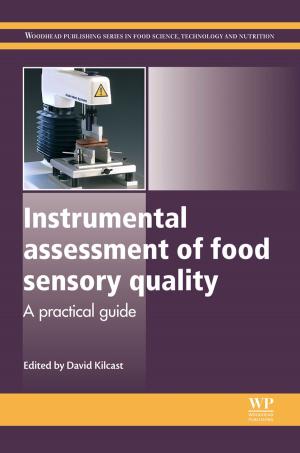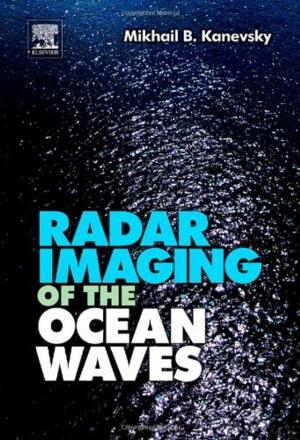Handbook of Foaming and Blowing Agents
Nonfiction, Science & Nature, Technology, Textiles & Polymers, Material Science| Author: | George Wypych | ISBN: | 9781927885185 |
| Publisher: | Elsevier Science | Publication: | January 13, 2017 |
| Imprint: | ChemTec Publishing | Language: | English |
| Author: | George Wypych |
| ISBN: | 9781927885185 |
| Publisher: | Elsevier Science |
| Publication: | January 13, 2017 |
| Imprint: | ChemTec Publishing |
| Language: | English |
Handbook of Foaming and Blowing Agents provides useful guidance to assist practitioners in the more efficient and effective selection of foaming methods and blowing agents. The book focuses on the selection of additives for a diverse range of foaming processes, which can be enhanced using modern chemical means to improve product quality, speed up the process, and broaden the range of products that can be produced using foaming technology.
Foamed polymers have many beneficial properties, including lower density, high heat and sound insulation, and shock absorbency. Foamed plastic parts are now a ubiquitous part of everyday life—from food packaging to seat cushions. As the application of foamed polymers expands and diversifies, a variety of foaming techniques and equipment are available to produce very diverse range of products.
Foaming methods are generally established, but very little is known about the composition of materials to be processed and the additives to enhance foam products or make the foam production more economical. The book introduces useful analytical techniques for foaming, and thoroughly discusses the environmental impact of foaming processes.
- Introduces the fundamental mechanisms of action of blowing agents and foaming
- Includes best practice guidance to help engineers and technicians improve the efficiency of their existing foaming processes
- Enables practitioners to select blowing agents and foaming methods more effectively, reducing the risk of poor specification
- Introduces useful analytical techniques for foaming
- Discusses the environmental impact of foaming processes
Handbook of Foaming and Blowing Agents provides useful guidance to assist practitioners in the more efficient and effective selection of foaming methods and blowing agents. The book focuses on the selection of additives for a diverse range of foaming processes, which can be enhanced using modern chemical means to improve product quality, speed up the process, and broaden the range of products that can be produced using foaming technology.
Foamed polymers have many beneficial properties, including lower density, high heat and sound insulation, and shock absorbency. Foamed plastic parts are now a ubiquitous part of everyday life—from food packaging to seat cushions. As the application of foamed polymers expands and diversifies, a variety of foaming techniques and equipment are available to produce very diverse range of products.
Foaming methods are generally established, but very little is known about the composition of materials to be processed and the additives to enhance foam products or make the foam production more economical. The book introduces useful analytical techniques for foaming, and thoroughly discusses the environmental impact of foaming processes.
- Introduces the fundamental mechanisms of action of blowing agents and foaming
- Includes best practice guidance to help engineers and technicians improve the efficiency of their existing foaming processes
- Enables practitioners to select blowing agents and foaming methods more effectively, reducing the risk of poor specification
- Introduces useful analytical techniques for foaming
- Discusses the environmental impact of foaming processes















